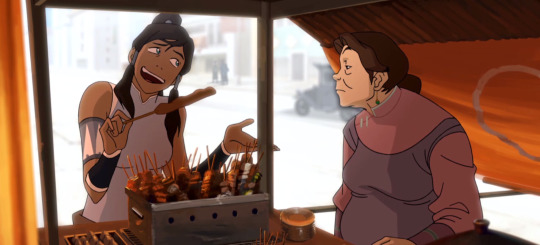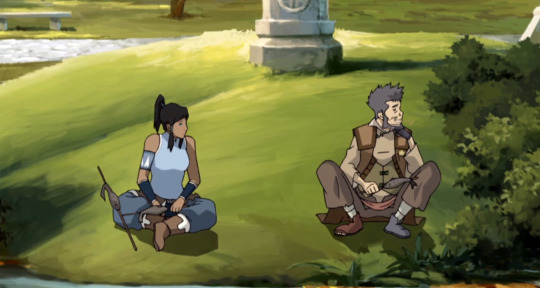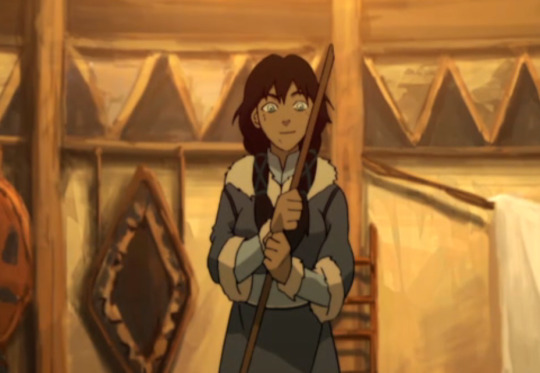#thread: vendor bender
Explore tagged Tumblr posts
Text
Vendor Bender (Closed: Morgan and Alm)
Morgan Anathema Abank was no fool.
Maybe he shouldn’t have been picking fights immediately upon his return from the battle against Sophrosyne. As he was still healing, moving his torso too much hurt; even laying down in bed forced gasps from his mouth as he bit back pain. There was no reason he should be out and about when he was supposed to be on bed rest...
It’s not his fault the infirmary was full and he was deemed “well enough” to finish his recovery in his dorm, where no one was there to order him to lay back down. Besides, rumors were flying, and the rumor that there were legendary weapons being sold by some street vendor was far too great to pass up.
Morgan Anathema Abank has never been a fool.
When this haggard-looking man holds up some rinky-dink blade with some ribbon tied around the hilt and calls it Falchion, Morgan really can’t hold back his laughter. (Even if it hurts like a bitch to laugh.) We’re talking full-on, head-thrown back, hands-on-his-hips kind of laughter, amber eyes lit up in absolute delight.
“Oh, you pathetic little man!”
(We never said Morgan was the kindest of men.)
“You really think that’s enough to fool me? You’ve got to be joking—is someone recording my very words, taking innocent bystanders’ responses as some sort of jest? Or are you truly profiting from such a poorly-concocted scheme?” Claude would be so disappointed, he thinks.
“You’re going to have to try a lot harder than that to pass off some flimsy little iron sword as Falchion!”
Needless to say, the vendor didn’t like this. Though their products were... shoddy at best, they still had a keen eye and could see the pain that just barely twisted on this nobody’s face as he laughed.
And that was something to take advantage of.
( People are beginning to crowd. A scene is forming, but no one feels obligated to step in to stop it. )
A quick, carefully-placed jab from the angry vendor is enough to send Morgan crashing back into the ground, clutching over his ribs in pain. Amber eyes dart around in a panic; he can’t fight alone, not in this condition, why did he leave his room—
A flash of green.
“Lord Alm!”
(A silent prayer sent Naga’s way. Thank you for keeping friends nearby.)
“A little help, please!”
Hopefully, the Saint King had been watching this little spectacle with the rest of the bystanders and knew just what to do.
@rudlm
#rudlm#thread: vendor bender#𝐆𝐞𝐭𝐭𝐢𝐧𝐠 𝐬𝐭𝐫𝐨𝐧𝐠𝐞𝐫 𝐨𝐧𝐞 𝐬𝐭𝐞𝐩 𝐚𝐭 𝐚 𝐭𝐢𝐦𝐞! (missions)#mission season: reconnaissance#𝐘𝐨𝐮 𝐭𝐢𝐩𝐩𝐞𝐝 𝐭𝐡𝐞 𝐬𝐜𝐚𝐥𝐞! (threads)
9 notes
·
View notes
Text
You’re Oppressing Yourselves: An exploration of interpretations, bad writing, and missed opportunities
Responders and Writing Techniques
There is a method to my madness. Part of that method is to introduce an idea and then bring it up again only a few posts later to help me explain my logic.
So let me begin this meta by explaining that I’m a #4 in terms of how I engage with a piece of media—I’m a responder. So, my first instinct is to try and make sense of a work within the framework that has been provided by the creator, or to provide my own framework in order to achieve a better understanding of what I’ve just absorbed.
This is why I tend to write fanfiction before I start writing metas. I can’t actually ‘see’ a work until I’ve chewed it up and reprocessed it/responded to it.
As a result of this particular quirk, I’m less likely to point out ‘bad writing’ right off the bat. When I come across something ‘inconsistent’ or ‘out of character’ for a given character in a fictional work, my first instinct is to try and figure out what the writer is trying to tell me about the character. Now, most of the time, my approach falls flat, because there are many inexperienced or rushed or frustrated writers in the world and when a character does something dumb or out of character it’s usually because the writer didn’t think things through, didn’t like the job, or is simply lazy.
That said, my tendency to try and read into inconsistencies isn’t entirely unfounded. Creating character inconsistencies is a valid writing technique, and it can be very effective when properly deployed. This technique can be used a foreshadowing, a means of setting up backstory, or even a proverbial Chekhov's gun. Character consistency and inconsistency is immensely important to character development, so any action that is ‘out of the ordinary’ for a character is a big deal.
Okay, now that I’ve put a bit of framework in place, let’s dig into Legend of Korra. This is, after all, a show so full of character inconsistencies that it’s the only standard character trait. We’re going to be focusing on a particularly inflammatory line from Season 1, Episode 1.
I’m going to provide a bit of critical analysis before digging into my perspective as a responder, because it’s important to point out bad writing in all its forms.
The Scene

Equalist: Are you tired of living under the tyranny of benders? Then join the equalists! For too long the bending elite of this city have forced non-benders to live as lower class citizens! Join Amon, and together we will tear down the bending establishment!
Korra: What are you talking about?! Bending is the coolest thing in the world!
Equalist: Oh yeah? Let me guess, you’re a bender!
Korra: Yeah! I am!
Equalist: And I bet you’d just love to knock me off this platform with some water bending, huh!
Korra: I’m seriously thinking about it!
Equalist: This is what’s wrong with the city! Benders like this girl only use their power to oppress us!
Crowd: *General Outcry and Agreement*
Korra: What?! I’m not oppressing anyone! You’re-you’re oppressing yourselves!
Critical Analysis
When I look back on this scene, I can’t help but think that everyone should have realized that Legend of Korra would never really be able to measure up to Avatar: the Last Airbender and adjusted their expectations accordingly. There are some very serious writing problems in this first episode and, for me, this scene captures them perfectly. All of these problems stem from one incredibly important, but often ignored fact: this is the first episode.
First episodes are ‘introductory’ episodes. They’re the ‘first chapter’ of a story and it’s important to set the status quo. While it’s certainly possible to drop a group of characters into the midst of crisis in the first episode, it’s important that you establish character during the crisis. Unless a writer is pulling some big, fancy flash-back sequence, it’s too soon to start including character inconsistency moments (unless you want to establish ‘inconsistency' as a core character trait, which is what LoK did).
This scene is a character inconsistency moment. It is built up over the course of several previous scenes and comes to a head in this particular character interaction. The sequence begins with Korra trying to buy food off a food vendor and being told off for not having money…

It continues the thread with Korra meeting the homeless man and being surprised by his poverty...

These two scenes both set a thematic tone and reveal important information about Korra’s character.
The thematic tone that’s been set by these first two interactions is ‘money and poverty in a city.’ The audience is watching as Korra stops, listens, and learns from the people she encounters. Korra is surprised at what she encounters, revealing her ignorance of the greater world, but at the same time, she does not become combative with the people who are ‘educating’ her. She accepts what she’s being told as truth and places her trust in the locals…
In light of the thematic setup and the characterization provided by the previous two scenes, I think it’s readily apparent that this scene makes no sense in the context of episode. Korra was not confronting non-bender oppression in the scenes leading up to this, she was encountering economic realities. This scene disrupts Korra’s characterization as someone who is capable of listening and growing an awareness of the problems of others.
Even Korra’s interjection in this scene, which opens her conversation with the equalist is completely out of left field. The equalist is talking about benders oppressing non-benders. Korra, however, ignores the discussion of oppression (which is surprising considering her temperament and approach to ‘solving problems’ in the very next scene) and argues that the act of bending is great and amazing. This has absolutely nothing to do with the point that the equalist was making, which goes against everything that we had been shown about Korra’s character up until that point.
All the same, this scene would have been fine if the writers had actually done something with Korra’s reaction in the course of the series. But there is no exploration or examination of Korra’s behavior in this instance. They gave the audience Chekhov’s gun and then did nothing with it—that’s one of the biggest sin’s a writer can commit. A good editor would have nixed this scene before it made it to production.
So, this is a scene that is thematically inconsistent and creates character inconsistencies and traits which are never resolved in the course of the series. Why does this scene exist?
I think it all comes down to one line: ‘You’re oppressing yourselves!’
That line carries a huge amount of emotional and psychological baggage for anyone who has ever been part of a minority group and has been shouted down by someone else. Many have been conditioned to react to that line negatively because their lives have been flooded with it and similar sentiments. That line is loaded with ‘shock value’ and was probably included to provoke a reaction.
Its inclusion isn’t just bad writing, it’s a blatant attempt at making a ‘statement’ through a character. And making a statement through a character without ‘follow-through’ (making sure that Chekhov’s gun goes off) is bad form.
Responder Analysis
But this scene can make sense in the context of the series. However, making it make sense would involve Bryke actually writing a loving family and exploring the dynamics of that family. I’m not convinced that Bryke knows how to do that.
I’m going to pull a little from personal experience here.
Now, I’ve seen ‘you’re oppressing yourselves’ tossed around online for ages, but I’ve only ever heard anyone say anything remotely close to it in real life once. A friend made the comment after we left a lecture that discussed theories on civil liberties and the development of certain aspects of oppressive language in regards to a specific group. We ended up talking about it and I was really surprised to learn that they had a close relative who was part of that ‘you’re oppressing yourselves’ group.
This relative was a family matriarch, had a lot of power within their community, and was a financially successful business person. For my friend, the idea that someone who was like that might suffer any form of oppression seemed absolutely ridiculous. How could one of the most influential and powerful people in my friend’s life possibly suffer any form of oppression when they commanded so much power and authority within their community?
Back to Korra. Up until this particular scene, Korra blindly and blithely accepts what she’s told, because she doesn’t know much about Republic City. The writers are showing her lack of knowledge. If Korra accepts what she’s told when she has no knowledge on a topic, then why would she argue against the idea that non-benders were oppressed unless she felt that she knew a thing or two?
Now, I doubt that the White Lotus took the time to explain bender/non-bender relations to Korra (one of the many, many baffling holes in her education…), so that means that whatever understanding that Korra has about non-benders comes from personal experience. That means that there must have been a strong, non-bender in Korra’s personal life who informed Korra’s understanding of the relationship between benders and non-benders.
The first and most obvious strong non-bender in Korra’s life is Pema. The wife of Aang’s son, Tenzin, who has no fear of her husband and who, on occasion, bosses him around.
But Pema and Korra don’t really share much screen-time and they rarely share much time talking about anything (outside of ill-fated romance). So, that means that the tough-as-nails non-bender might be a little closer to home.

Let’s talk about Senna, the Avatar’s mother who is never shown to have any bending ability in any existent season of Legend of Korra. Tonraq is a powerful bender, and someone that Korra clearly respects and admires. If Senna, his wife, were a non-bender and Korra spent the first five years of her life in a household where her non-bender mother actively argued with, bossed around, and was respected by a powerful and formidable water bender what conclusion would she naturally reach?
This is why I favor the theory that Senna is a non-bender. Korra’s outburst is out of character for her, unless it’s a defensive reaction to having her understanding of a close, personal relationship with a non-bender disrupted. It can be painful and difficult for a child, particularly a sheltered child, to be made to recognize the vulnerability of a parent or provider, especially when the child is put on ‘the side’ of the oppressor.
But Senna is not a non-bender. This scene only serves to tell the audience that the lead character is an ignorant, unlikable brat. And it really bothers me that this scene, which could have set up for some incredibly powerful mother/daughter moments and an exploration of family dynamics, was nothing more than a pointless dig at the audience…
Which why I’m ignoring Bryke’s canon and going with my own head canon where Senna is concerned. So, tough non-bender Senna is my jam.
#Senna#Korra#you're oppressing yourselves#Avatar: Legend of Korra#Meta#Bad Writing#Critique#benders#Non-benders#Equalists#Season 1: Epsiode 1#A:LoK#Analysis#Writing Techniques#Character inconsistencies
26 notes
·
View notes